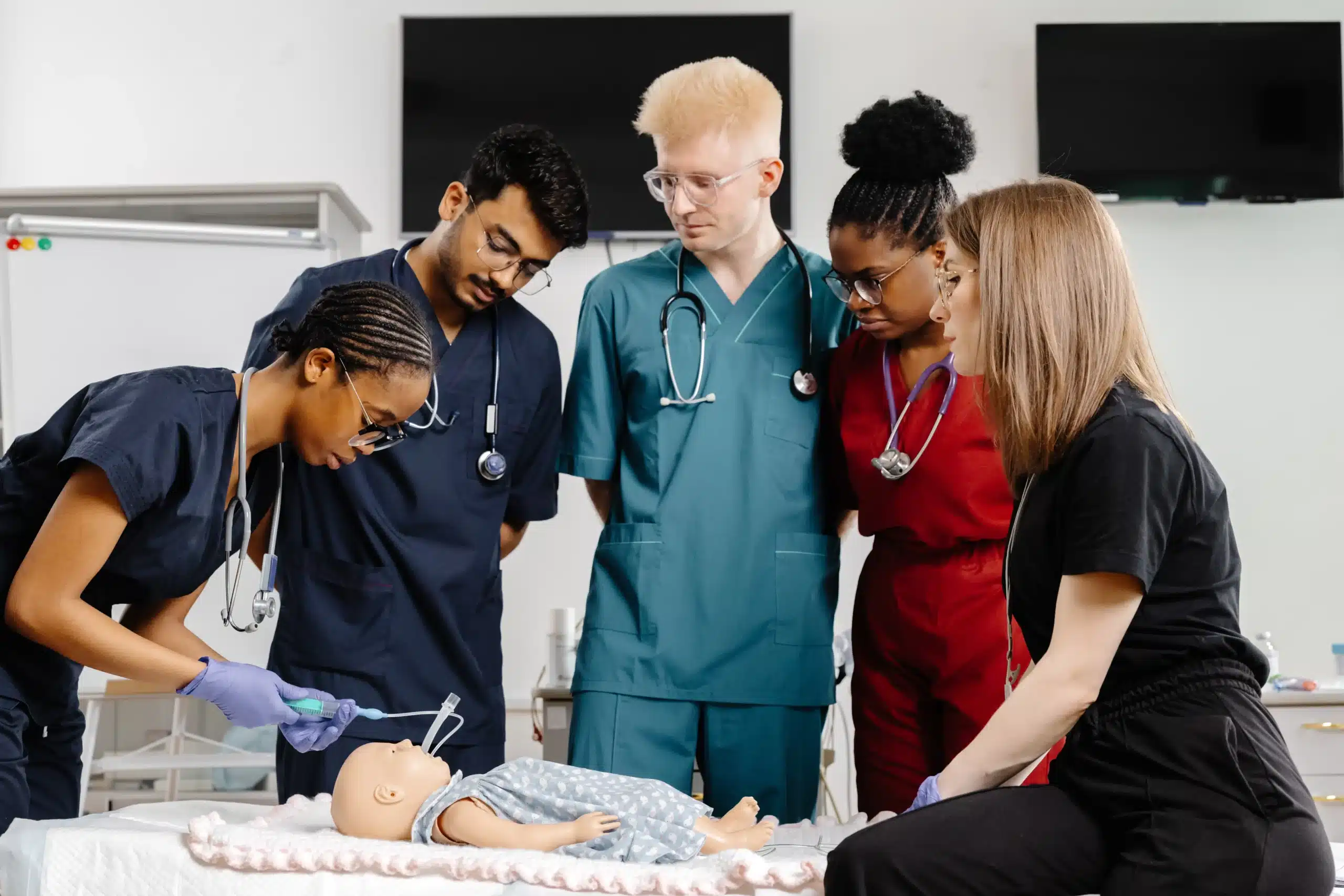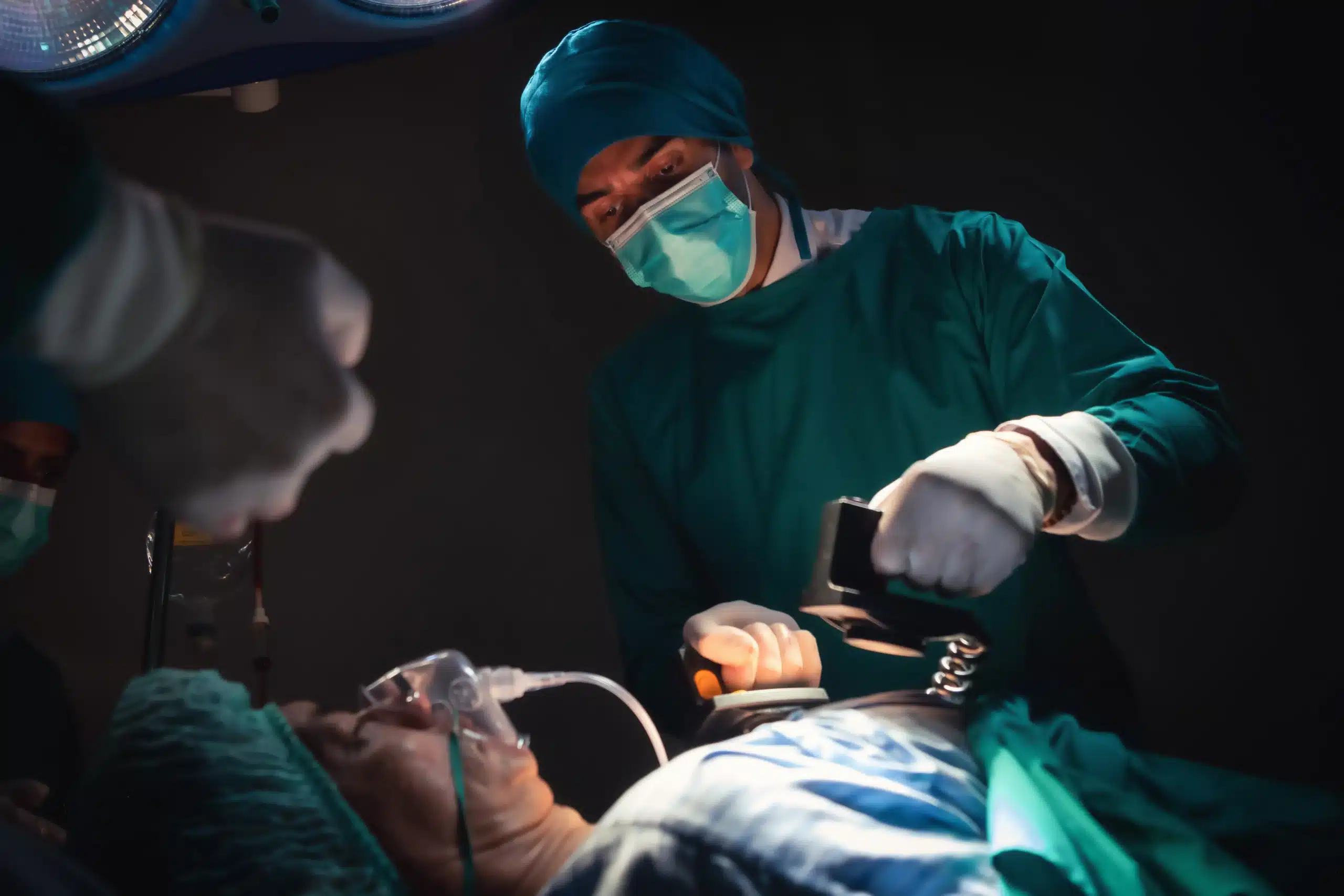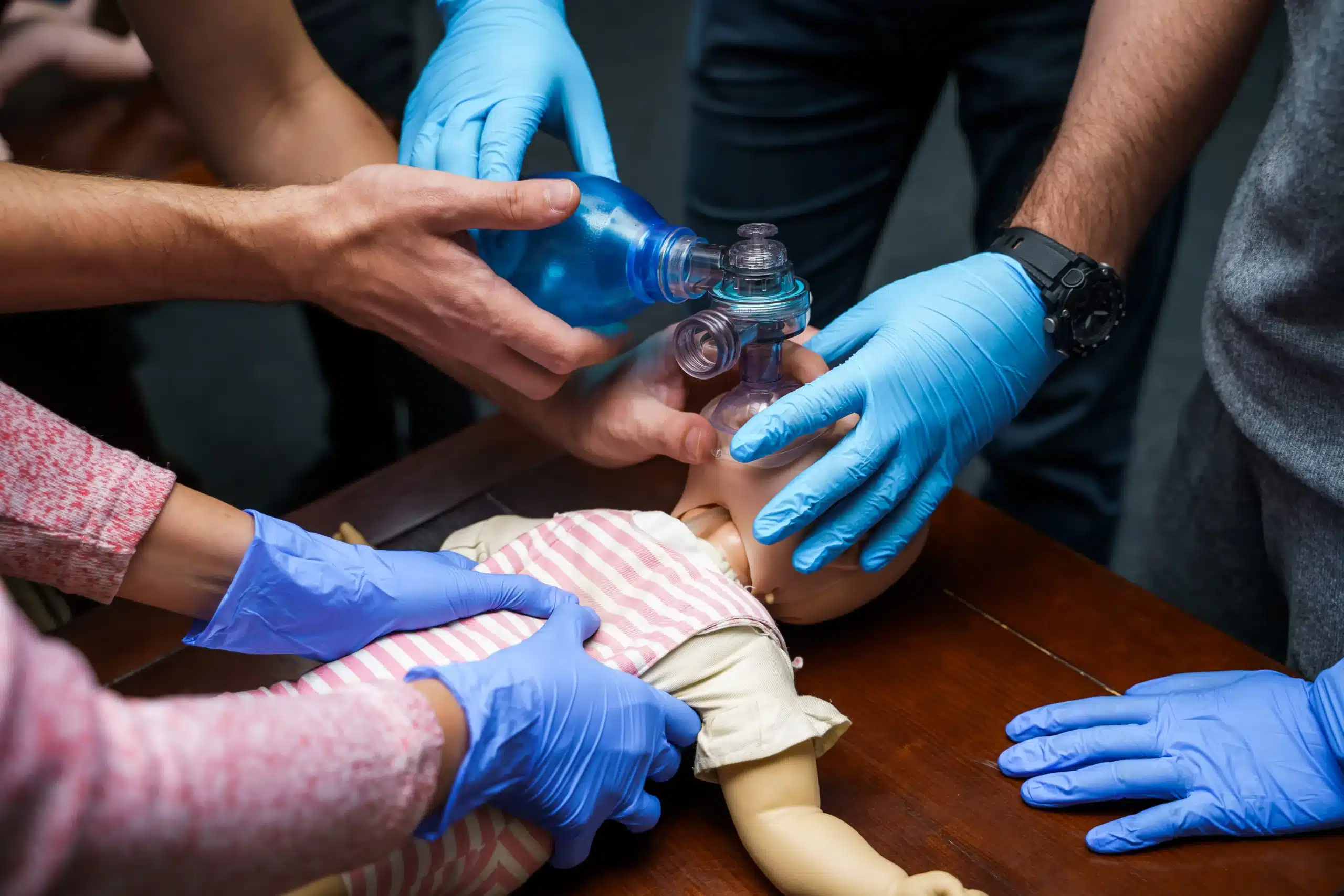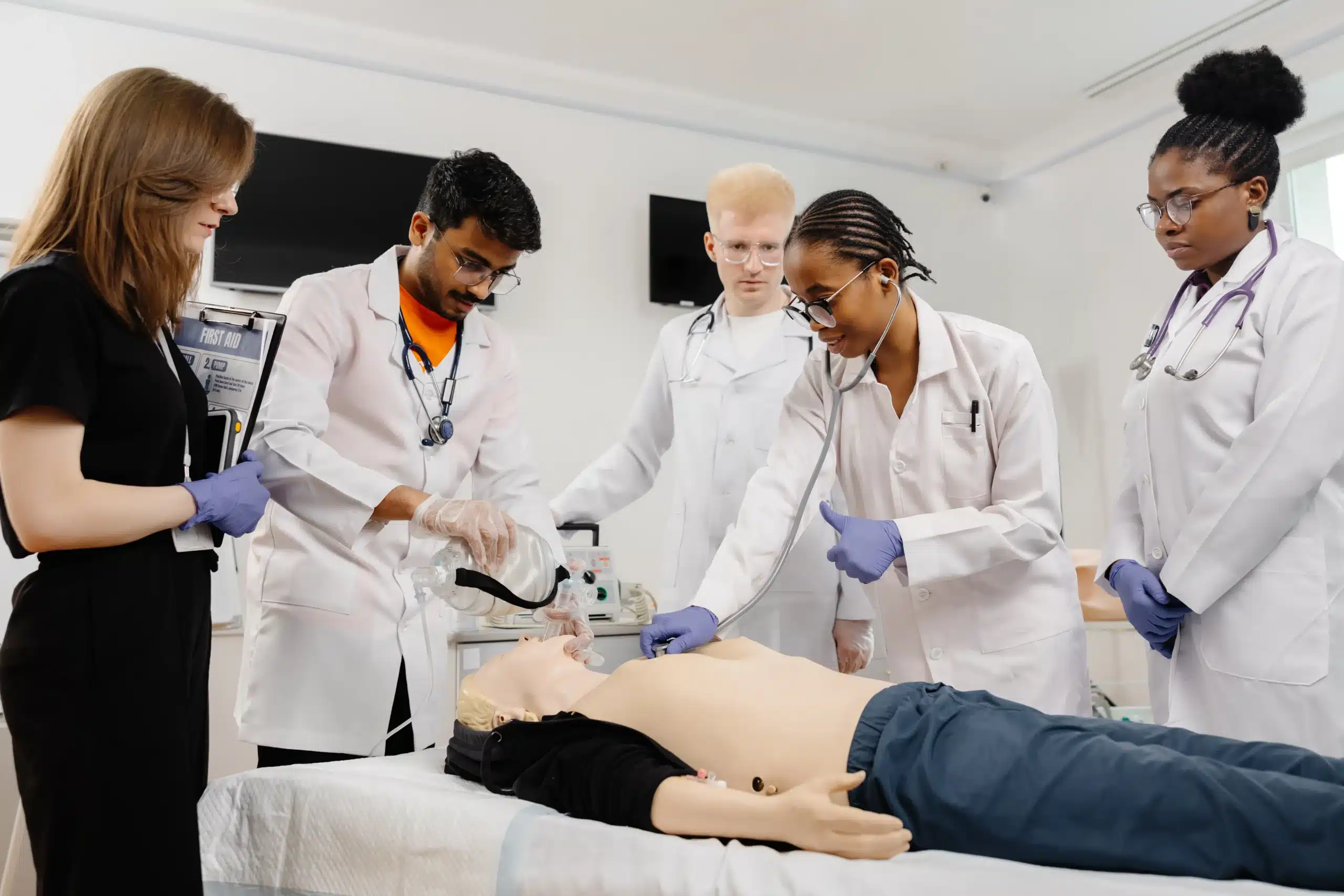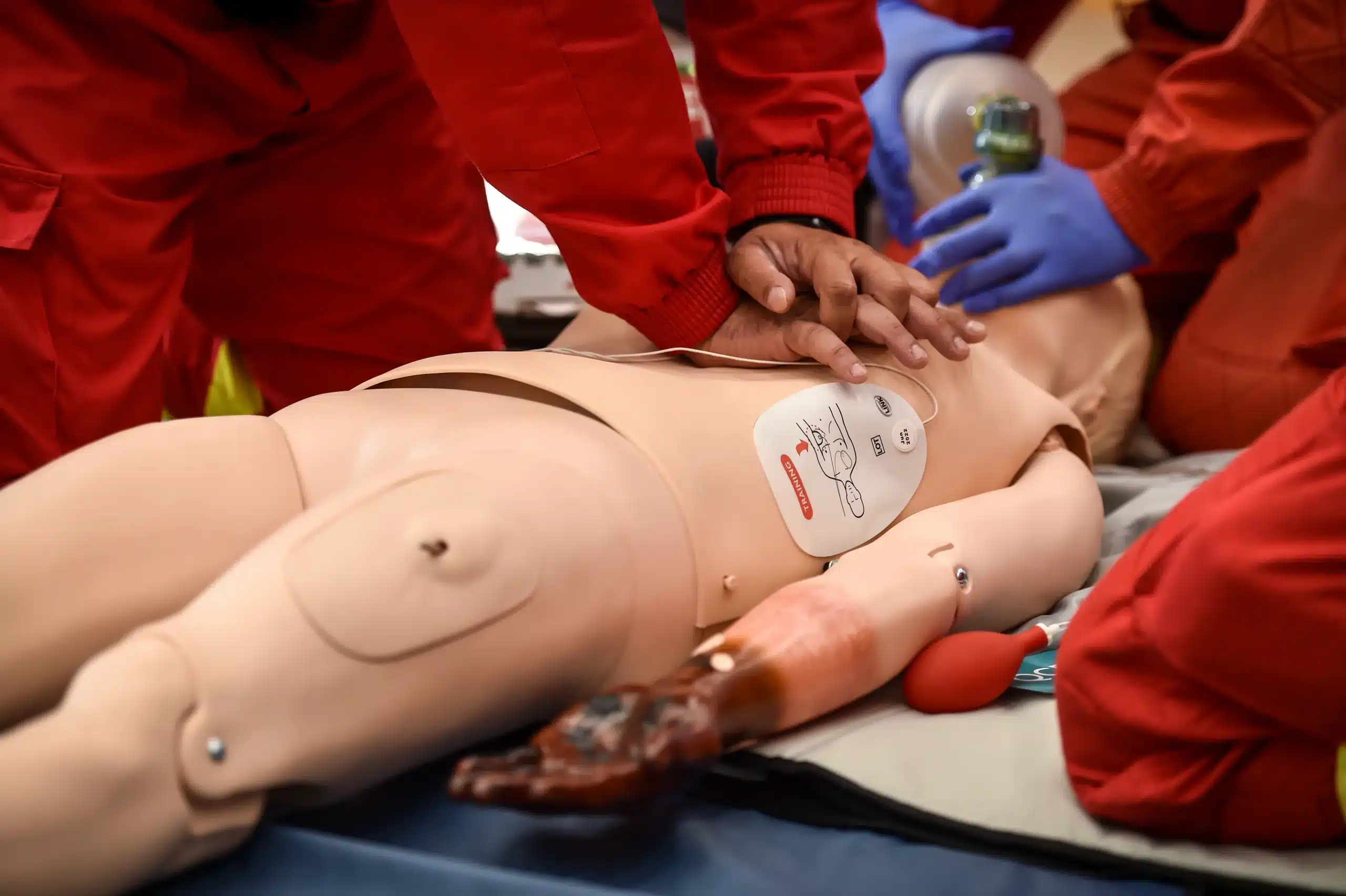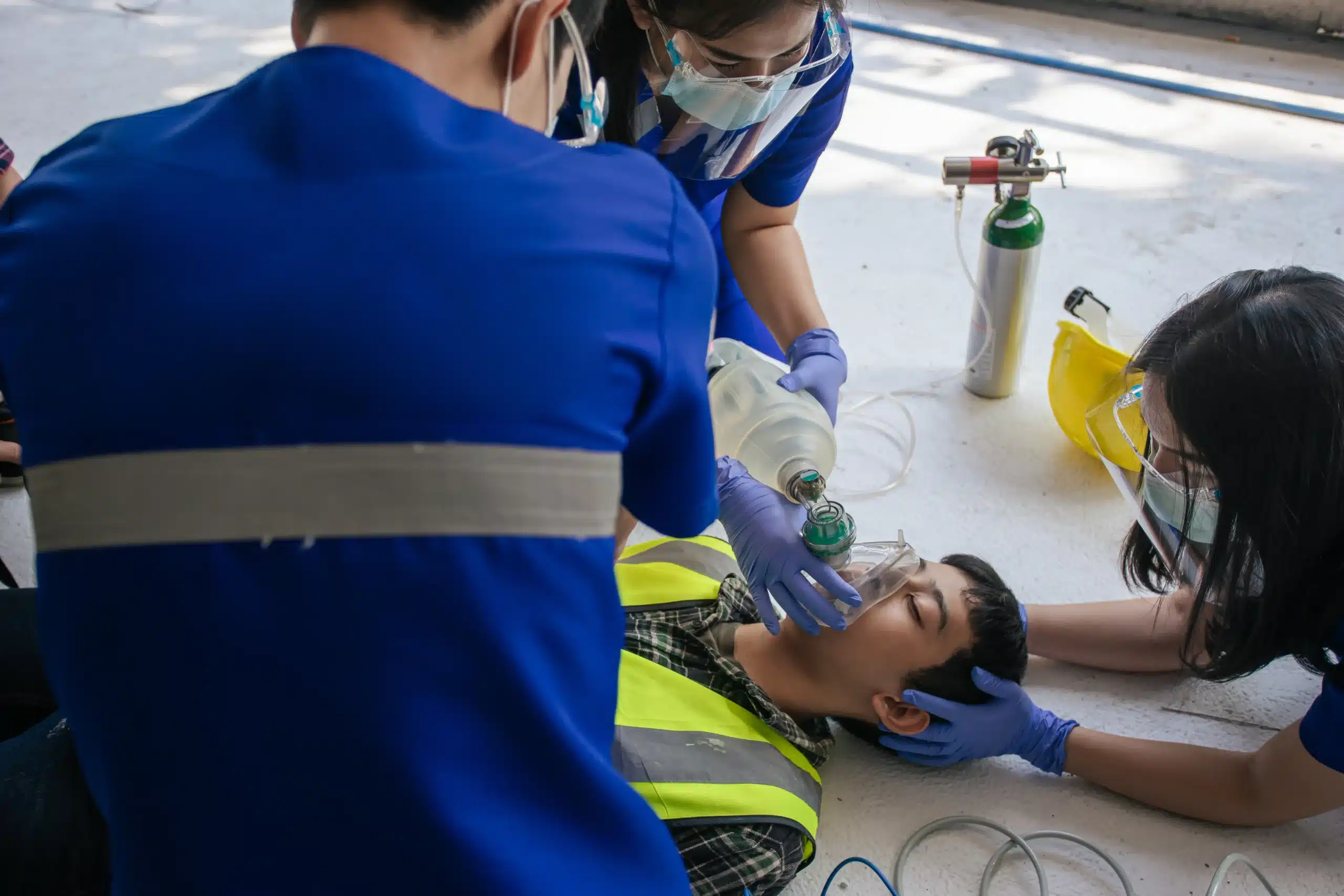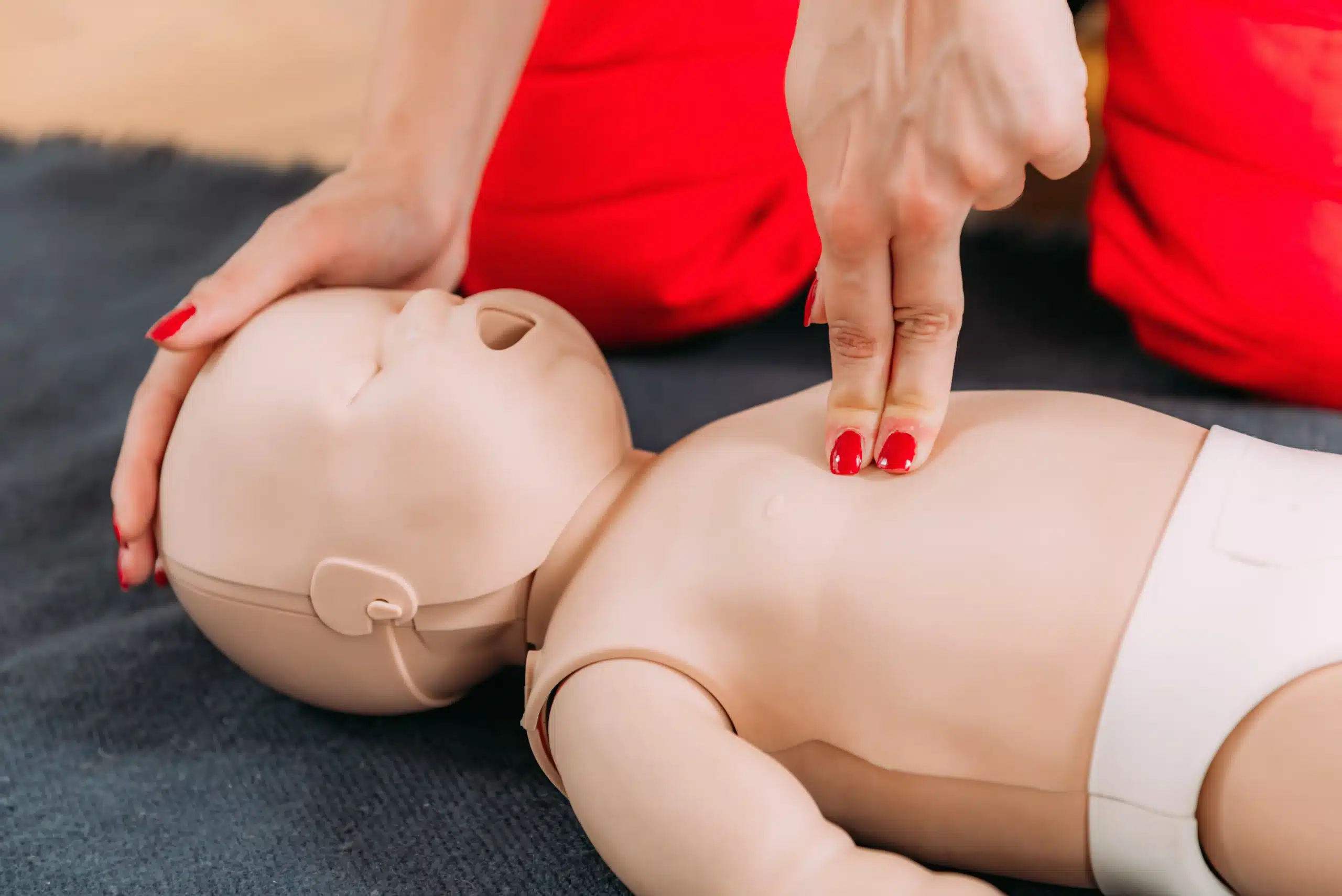Bringing a new life into the world is a joyous occasion, but sometimes, those first few moments require specialized care. As a healthcare professional, you know how crucial it is to be prepared for any situation during childbirth. That’s where the Neonatal Resuscitation Program (NRP) comes in. This specialized training equips you with the skills to provide life-saving care to newborns needing a little extra help. If you’re looking for NRP in SF, this guide will walk you through everything you need to know, from course content and requirements to finding the right training provider in San Francisco. We’ll cover the benefits of NRP certification, the challenges you might encounter, and how to maintain your skills so you can confidently handle any newborn emergency.
Key Takeaways
- NRP equips you for newborn emergencies: This training provides the essential skills to manage critical moments after birth, from positive-pressure ventilation to medication administration and coordinated team efforts. Consistent practice is key for confident and effective care.
- Choosing the right NRP course is an investment: Consider factors like location, schedule, and provider reputation to find the best fit for your learning style and career goals. Look for comprehensive programs aligned with current AAP guidelines.
- San Francisco offers accessible NRP training and resources: Take advantage of local providers, flexible scheduling, and continuing education opportunities to maintain your certification and stay at the forefront of neonatal resuscitation best practices.
What is the Neonatal Resuscitation Program (NRP)?
The Neonatal Resuscitation Program (NRP) provides a standardized approach to newborn care, especially for infants requiring intervention or resuscitation. It’s a comprehensive educational curriculum designed to equip healthcare professionals with the skills to handle the critical moments after birth.
NRP Definition
The NRP focuses on a structured algorithm and curriculum, training healthcare providers to support a newborn’s transition to life outside the womb. This program offers a consistent approach to care, ensuring all team members follow best practices when assisting infants needing respiratory support or other life-saving interventions. This standardized approach helps reduce errors and improve outcomes. For a deeper understanding of the program, read more about the Neonatal Resuscitation Program.
Key Objectives and Impact
NRP certification empowers healthcare professionals to deliver immediate, life-saving care to newborns in distress. Developed by the American Academy of Pediatrics (AAP) and the American Heart Association (AHA), the program is recognized internationally as an effective method for stabilizing newborns after birth. This training is crucial for anyone involved in newborn care, ensuring they can confidently manage emergencies. Learn more about NRP Certification in San Francisco.
Relevance in Urban Settings
In bustling urban environments like San Francisco, with its readily available advanced medical facilities, NRP training is especially valuable. It equips healthcare providers with the skills to handle high-stress delivery situations and manage any complications that may arise. This preparedness is essential for ensuring positive outcomes for newborns. Explore more about the importance of these skills by checking out these CPR and first-aid courses.
Find NRP Courses in San Francisco
If you’re a healthcare professional in San Francisco and need NRP certification or recertification, you have several excellent training options. Here are a few providers to consider:
Safety Training Seminars
Safety Training Seminars offers NRP courses in several Bay Area locations, including San Francisco (Mission Bay), Concord, and Milpitas. These courses follow American Academy of Pediatrics (AAP) and American Heart Association (AHA) guidelines, so you can be confident you’re receiving comprehensive, high-quality training. Visit their website to view their NRP course schedule and find a time that fits your needs.
Bay Area CPR
Bay Area CPR is another convenient option for NRP certification and renewal, with classes available in San Francisco, Concord, and Milpitas. They offer flexible scheduling to accommodate busy healthcare providers. Their NRP courses emphasize practical skills and team-based resuscitation scenarios, preparing you to confidently handle real-world emergencies.
Other Reputable Providers
For additional NRP course options, check out resources like Bay Area NRP Courses. This site lists various CPR and NRP courses throughout the Bay Area, allowing you to easily compare schedules and locations. This is especially useful if you’re searching for a class in a specific part of San Francisco or a nearby city.
Online Resources and AAP Offerings
The American Academy of Pediatrics (AAP) website is a valuable resource for learning about the latest evidence-based practices in neonatal resuscitation. While the AAP doesn’t directly provide courses, their site offers detailed information about the NRP program and its importance in improving neonatal care. It’s a great starting point if you’d like to learn more about the curriculum and its benefits.
NRP Course Structure and Requirements
Choosing the right NRP course is a big decision. It’s an investment in your skills and your career. Understanding the structure and requirements upfront helps you find the best fit for your schedule and learning style. Here’s what to expect:
Online Learning
The NRP course begins with a self-paced online learning module. This portion typically takes about three hours to complete and covers the foundational knowledge you’ll need for the in-person skills session. Complete the online portion from anywhere with an internet connection, making it a convenient way to fit the training into your busy schedule. You can find more information about the online component from sources like Bay Area CPR Courses.
Hands-on Skills Testing
After the online learning module, you’ll move on to the hands-on skills testing portion. This involves demonstrating your proficiency in essential neonatal resuscitation techniques. This in-person session usually takes about three hours and is conducted at designated training sites. Safety Training Seminars offers skills testing locations in San Francisco, Concord, and Milpitas, giving you options for a convenient location. For details on skills testing locations and schedules, check out CPR CPR.
Time Commitment
Between the online learning module and the in-person skills testing, the entire NRP course requires approximately six hours of your time. With Safety Training Seminars offering NRP courses roughly 16 times per month, you should be able to find a session that works for you. You can find more information on course frequency and scheduling at Bay Area CPR.
Prerequisites and Materials
While there aren’t strict prerequisites for the NRP course, having some healthcare background can be beneficial. The course materials, including the online module and any required textbooks, are often provided by the course provider. Confirm what materials are included with your chosen provider to ensure you have everything you need. For more information on NRP courses and what they entail, visit Safety Training Seminars.
Key Skills Learned in NRP
The Neonatal Resuscitation Program (NRP) equips healthcare professionals with essential skills to manage newborn emergencies. From airway management to team coordination, here’s what you’ll learn:
Positive-Pressure Ventilation
Newborns sometimes need help breathing. NRP training covers various interventions, including airway management and ventilation techniques. You’ll learn how to use positive-pressure ventilation (PPV) to deliver breaths to a newborn who isn’t breathing well. This involves using a bag and mask or another device to gently inflate the baby’s lungs, a crucial skill for supporting newborns during respiratory distress.
Chest Compressions
NRP certification teaches essential newborn resuscitation skills, including chest compressions. You’ll learn the proper depth, rate, and hand placement for chest compressions on a newborn. This skill is critical for maintaining blood circulation when a baby’s heart rate is low. The training emphasizes coordinating chest compressions and ventilation to maximize the chances of successful resuscitation.
Medication Administration
Sometimes, newborns require medication immediately after birth. The Neonatal Resuscitation Program (NRP) offers an evidence-based approach to newborn care, including medication administration. You’ll learn about common medications used in neonatal resuscitation, their dosages, and safe administration. This knowledge is essential for stabilizing newborns experiencing specific medical complications.
Teamwork and Communication
Effective teamwork is paramount in neonatal resuscitation. The NRP program emphasizes team-based care, crucial for healthcare professionals caring for newborns at delivery. You’ll learn to communicate clearly and efficiently within a team, delegate tasks, and coordinate efforts. Strong communication and collaboration ensure everyone works together toward the same goal: the successful resuscitation of the newborn.
NRP Course Costs & Accessibility in San Francisco
Finding a balance between quality training and affordability is a common concern for healthcare professionals. Let’s break down the typical NRP certification costs in San Francisco and explore accessible training options.
Average Pricing
In San Francisco, an NRP course typically costs around $280. This usually covers the online portion, the hands-on skills testing, and your official NRP provider card. Prices can vary slightly between providers, so check directly with training centers like Safety Training Seminars for their current pricing.
Discounts and Promotions
Want to maximize your training budget? Many NRP course providers offer discounts, often for students or those bundling multiple courses. Some providers have a 15% discount on courses like ACLS, BLS, PALS, PEARS, and NRP when purchased together. You might also find package deals combining advanced courses like ACLS and PALS for a reduced per-course price, sometimes as low as $199 each, or a discounted rate for three core courses for around $349. Safety Training Seminars may have discounts available.
Flexible Scheduling
We understand healthcare professionals have busy schedules. NRP training in San Francisco offers flexibility, with many providers offering courses multiple times a month, including weekend and evening options. This makes it easier to fit this vital certification into your schedule. Safety Training Seminars offer various course dates and times to accommodate busy schedules.
Benefits and Challenges of NRP Training
The Neonatal Resuscitation Program (NRP) offers numerous benefits, but also presents unique challenges. Understanding both aspects is crucial for anyone considering or currently undergoing NRP training.
Improved Neonatal Care
The NRP equips healthcare professionals with the skills to deliver life-saving care to newborns in need. Developed by the American Academy of Pediatrics (AAP) and the American Heart Association (AHA), the NRP program provides a globally recognized method for stabilizing newborns immediately after birth. This training empowers healthcare providers to respond effectively to emergencies, potentially reducing neonatal mortality and improving long-term outcomes. Ultimately, NRP contributes to a higher standard of care for newborns, ensuring they receive the best possible start in life.
California Compliance
In California, maintaining NRP certification demonstrates a commitment to providing high-quality neonatal care. It ensures healthcare professionals stay current with the latest guidelines and best practices, as described in this guide to NRP Certification. This commitment benefits patients and fulfills professional requirements, allowing healthcare providers to practice legally and ethically within the state.
Local Expertise and Networking
Undergoing NRP training in San Francisco offers the chance to connect with local experts and build a professional network. NRP courses often bring together healthcare providers from various backgrounds and institutions, fostering collaboration and knowledge sharing. This local network can be invaluable for ongoing professional development and support.
Addressing Infrequent Use
One challenge of NRP training is the infrequent use of these skills in real-world scenarios. Because healthcare providers may not regularly encounter situations requiring neonatal resuscitation, maintaining proficiency can be difficult. Regular practice and incorporating simulation scenarios, as discussed in this NRP Certification guide, are essential for bridging this gap and ensuring preparedness when these critical skills are needed.
Managing Team Dynamics
NRP emphasizes effective teamwork and communication—vital skills in high-pressure medical situations. Learning to coordinate with other healthcare professionals, delegate tasks efficiently, and communicate clearly during emergencies is a key component of NRP training. This focus on team dynamics, highlighted in resources like this article on the 8th Edition of NRP, prepares healthcare providers to work collaboratively and provide optimal care during neonatal emergencies.
Maintain Your NRP Certification
Keeping your NRP certification current is crucial for providing the best possible care to newborns. This section covers everything you need to know about renewing your certification, continuing your education, and finding local workshops.
Renewal Requirements
Your NRP certification, provided as an eCard, is valid for two years. To renew, you’ll need to complete the online portion of the course again and attend another instructor-led event. This ensures you stay updated on the latest guidelines and refresh your practical skills. The American Academy of Pediatrics offers more information for NRP providers.
Continuing Education
Beyond the renewal requirements, continuing education is essential for any healthcare professional. Look for opportunities to expand your knowledge and refine your skills in neonatal resuscitation. Staying current with best practices will boost your confidence and improve the effectiveness of your care. For more insights, check out our guide to NRP certification in San Francisco.
Local Workshops
Finding convenient local workshops to maintain your NRP certification is easy in San Francisco. Safety Training Seminars offers NRP courses multiple times per month, providing plenty of options to fit your schedule. These local workshops offer hands-on training and the chance to network with other healthcare providers in your area. You can register for upcoming NRP courses in Concord or San Francisco on our website.
Resources for Ongoing NRP Education
Staying sharp with your NRP skills is crucial for providing the best possible care to newborns. Thankfully, there are several ways to brush up on your knowledge and technique, even after you’ve completed your initial NRP certification. Remember, consistent practice is key to confident and effective neonatal resuscitation.
Online Platforms
The internet offers a wealth of resources for ongoing NRP education. The American Academy of Pediatrics (AAP) website, for example, provides updates and resources related to the Neonatal Resuscitation Program, reflecting their evidence-based approach to newborn care. Similarly, websites like Bay Area NRP Courses offer helpful articles and insights into the importance of NRP training for healthcare professionals. These online platforms are a convenient way to stay informed about the latest advancements and best practices in neonatal resuscitation.
Local Simulation Centers
For those who prefer hands-on learning, local simulation centers offer a valuable opportunity to refine your skills. Safety Training Seminars highlights the importance of simulation training for mastering essential newborn resuscitation skills. These centers provide realistic scenarios that allow you to practice your techniques in a safe and controlled environment. As Bay Area CPR points out, regular practice and simulation are essential for maintaining proficiency, especially given that real-life NRP situations can be infrequent.
Professional Associations
Connecting with professional organizations is another excellent way to stay engaged with the NRP community. The American Academy of Pediatrics (AAP) and the American Heart Association jointly developed the NRP program, and their websites offer valuable resources and updates. These associations often host workshops and conferences where you can connect with other healthcare providers and stay informed about the latest developments in the field. Engaging with these professional networks can significantly enhance your understanding and application of NRP techniques.
Choose the Right NRP Course Provider
Finding the right NRP course provider is crucial for a valuable learning experience. It’s an investment in your skills and career, so consider these factors when making your choice.
Factors to Consider
Think about what you need from an NRP course. Do you prefer in-person, hands-on training or the flexibility of online learning? Consider your schedule and how much time you can commit. Location is also important—look for a provider with convenient training sites. Finally, check if the provider offers continuing education opportunities to maintain your NRP Certification.
Provider Comparison
NRP courses vary in quality, so research different providers in your area. Look at what each program covers. Does it align with the latest American Academy of Pediatrics (AAP) guidelines? Bay Area CPR emphasizes how NRP equips healthcare professionals with essential skills for high-stress situations during childbirth. This highlights the importance of comprehensive training. Also, compare pricing and course structures. Some providers offer bundled packages that include online learning, skills testing, and your NRP card. For example, CPR CPR offers courses with a clear breakdown of costs.
Student Feedback
Reading reviews from other students can give you valuable insights. Look for comments about the quality of instruction, the helpfulness of the materials, and the overall learning experience. Did the course effectively prepare students for real-world scenarios? Safety Training Seminars emphasizes how NRP certification equips healthcare providers with the skills to improve patient care and outcomes. This reinforces the importance of choosing a provider known for impactful training. By considering these factors and doing your research, you can find the NRP course that best fits your needs and helps you excel in your career.
Prepare for Your NRP Course
Getting ready for your NRP course involves more than just signing up. A little prep work goes a long way toward making the most of the experience. Here’s how to approach it:
Study Strategies
NRP courses blend online learning with in-person skills sessions. Start by reviewing the course materials and familiarizing yourself with the core concepts. This pre-course study will make the in-person training much more effective. Remember, choosing the right NRP course is a significant decision—it’s an investment in your skills and your career.
Maximize Hands-on Practice
The Neonatal Resuscitation Program (NRP) emphasizes hands-on learning. Take advantage of every opportunity to practice the skills you learn. The more you practice positive-pressure ventilation, chest compressions, and other essential techniques, the more confident and competent you’ll become. Simulation scenarios are incredibly valuable for building these skills and preparing you for real-world situations. Regular practice is crucial for maintaining proficiency after the course, too.
Leverage Local Resources
For healthcare professionals in the San Francisco Bay Area, NRP certification is often a job requirement. Local resources are readily available. Safety Training Seminars offers NRP courses in San Francisco, along with other essential certifications like BLS, ACLS, and PALS. You can find NRP courses offered frequently in the area, making it easy to fit the training into your schedule.
Related Articles
- NRP Certification in San Francisco: Your Guide – San Francisco CPR Classes
- NRP Classes in San Francisco – San Francisco CPR Classes
- PALS Certification in San Francisco: Your Complete Guide – San Francisco CPR Classes
- Online CPR Classes in SF: Your Complete Guide – San Francisco CPR Classes
- CPR Renewal in SF: Your Easy Recertification Guide – San Francisco CPR Classes
Frequently Asked Questions
How often do I need to renew my NRP certification? NRP certification is valid for two years. You’ll need to complete both the online learning assessment and the in-person skills evaluation to renew.
What if I don’t use my NRP skills regularly? Even if you don’t use your NRP skills daily, staying proficient is crucial. Regularly review the materials and consider practicing with colleagues or at local simulation centers. This helps maintain your skills and ensures you’re prepared for emergencies.
What’s the difference between NRP and other certifications like BLS or PALS? While all these certifications address life-saving techniques, they focus on different populations. BLS is for anyone, PALS is for pediatric patients, and NRP specifically addresses the unique needs of newborns.
How can I find NRP courses near me in San Francisco? Several providers offer NRP courses in San Francisco. Check out Safety Training Seminars, Bay Area CPR, and Bay Area NRP Courses for schedules and locations. You can also find information on the American Academy of Pediatrics website.
What if I fail the skills test? Don’t worry if you don’t pass the skills test on your first try. Most providers allow you to retake the test. They’ll often provide feedback to help you improve and succeed on your next attempt.


